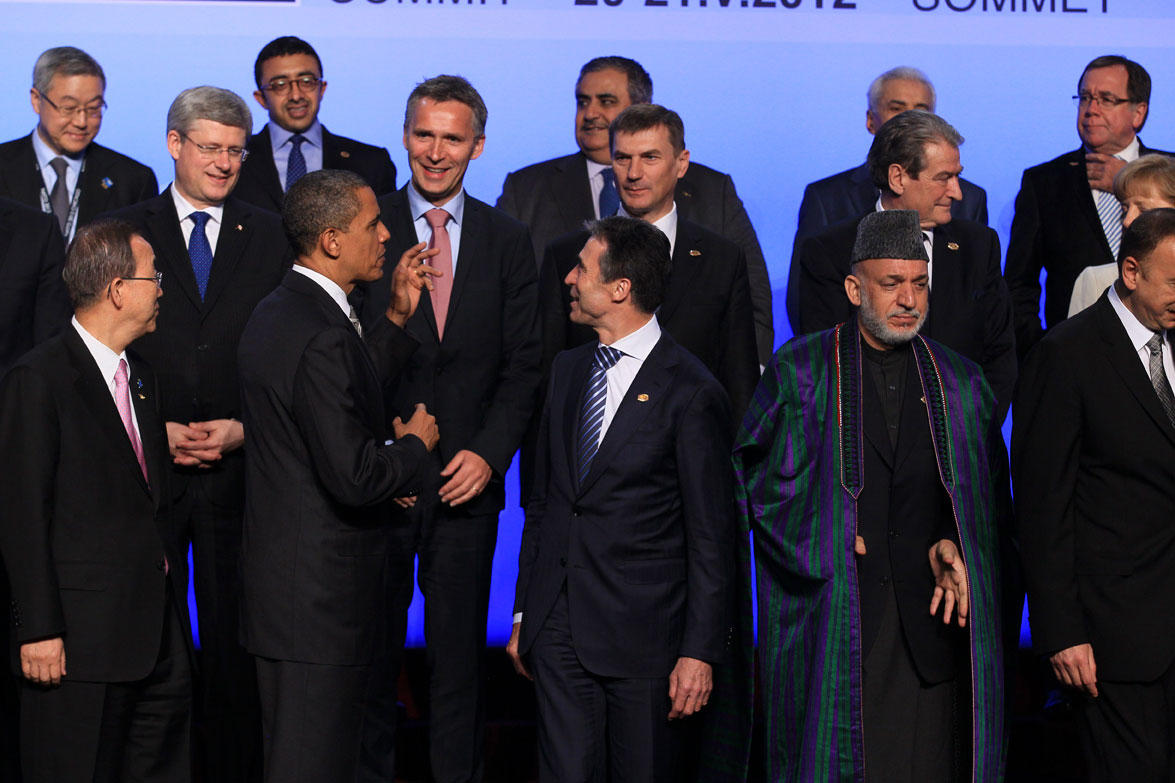
The Chicago summit dealt with a host of international and organizational issues, but the Afghan mission certainly topped the agenda.
Member states agreed on the withdrawal timetable, marking the start of the end of an era, and pledged a non-combat, training and support role beyond 2014, with the hope that the war would eventually end as part of a political settlement of sorts.
NATO’s gradual entrance onto the Afghan scene in 2003 occurred at a time when the Afghan mission was seen as the right war for the just cause and backed by strong public support. Although unknown at the time, there was also a hidden cross-border insurgency still in re-group mode and figuring out the most effective way to challenge the new political order being established in a new Afghanistan.
That was then. Almost a decade later, the overall situation has almost entirely turned upside down. History will undoubtedly look for causes and reasons, among them, the distraction caused by the Iraq war, weak Afghan governance and rule of law. Light foot-printing and under-resourcing, lack of coordination and prioritization, regional duplicity and other factors are also plausible contributors, But the fact remains that the mission underwent several strategic rethinks, matured by 2009 just as the surge was announced, and did accomplish some limited objectives in terms of counter-insurgency, stabilization and transition to Afghan lead. The cost, however, has become steep in terms of human, political and financial investment over the last decade.
Despite the ups-and-downs, this mission still has two critical years ahead. As President Obama rightly warned, "hard days" and "great challenges" lay ahead. Afghanistan’s security, political and economic sectors remain fragile and vulnerable to provocation. What happens if a durable and just political settlement cannot be reached, or even worse, emboldened terrorist groups re-emerge, realign themselves with like-minded local allies and act as strategic spoilers? To some, the Afghan end game has an exit timetable but suggests little in terms of strategic contingency, or a "Plan B."
While the Chicago summit contained a political message to a domestic audience, there was another one geared toward Afghans. It is to reassure them of continued support as the country moves into a lead role. Afghans are not certain whether their institutions are strong enough to absorb the triple shock that is about to hit them from the security, political and economic standpoints. The question is what to do over the next two years to strengthen that shock absorption capacity.
Part of the answer lies in Afghanistan.
A recent national poll published by the BBC shows that almost 70 percent of Afghans still remain optimistic about the future and believe that the international community will not repeat the grand error of the 1990s when it abandoned Afghanistan following the Soviets military withdrawal. About 52 percent expressed a high opinion of Afghan security forces and 37 percent believe Afghan forces will not be ready to take on responsibilities by 2015, according to the same poll. In this regard, the NATO summit’s stress on democratic governance, free and fair elections, human and gender rights, anti-corruption, rule of law and other responsibilities will be well received by most Afghans who do not want to see the hard-earned gains of the last decade be negotiated away.
The other part of the answer lies in South Central Asia. Afghans consider the war as an extension of geo-politics and meddling neighbors. The NATO declaration has little to say in this regard, except that "countries in the region, particularly Pakistan, have important roles in ensuring enduring peace, stability and security in Afghanistan and in facilitating the completion of the transition process."
NATO’s 2012 summit, as predictable as it had become, did not offer any major surprise, but marked the start of the "irreversible" Afghan exit without resolving a few lingering questions. The real transition work that starts now will require concrete results by the end of 2014. Planning, management and execution of the tasks ahead will determine the outcome for NATO’s most ambitious mission ever, and for stability in Afghanistan and its neighborhood.



